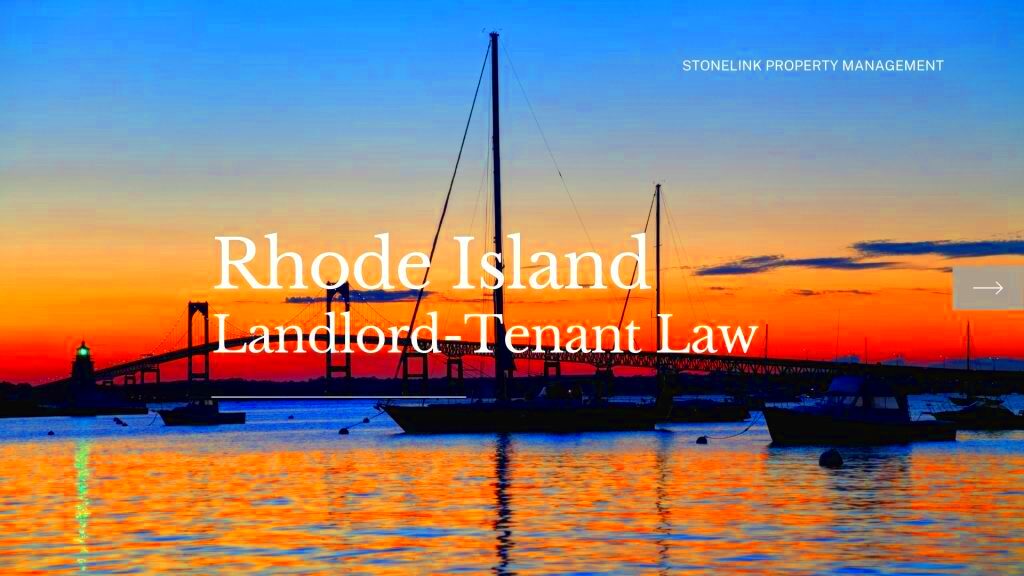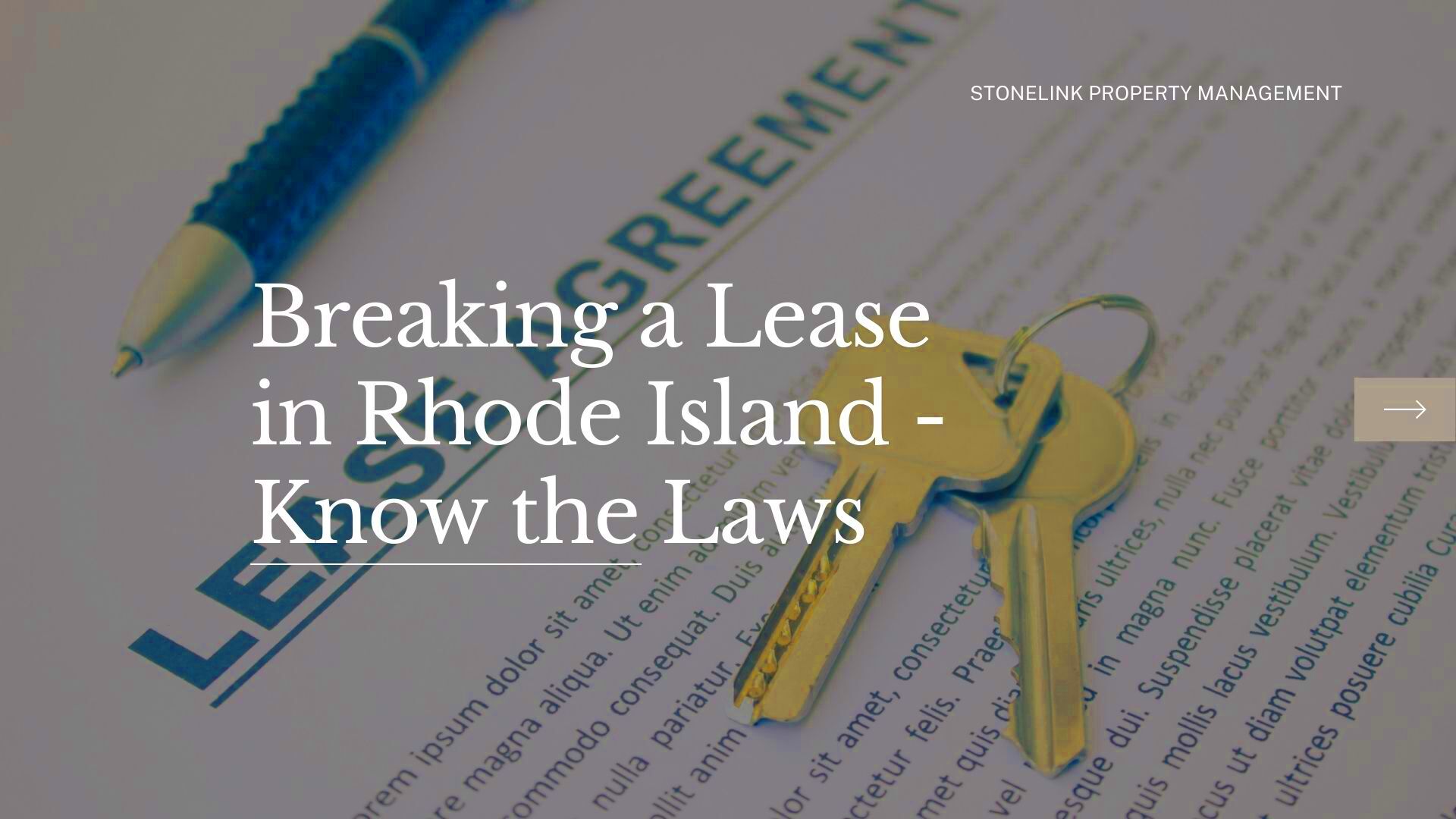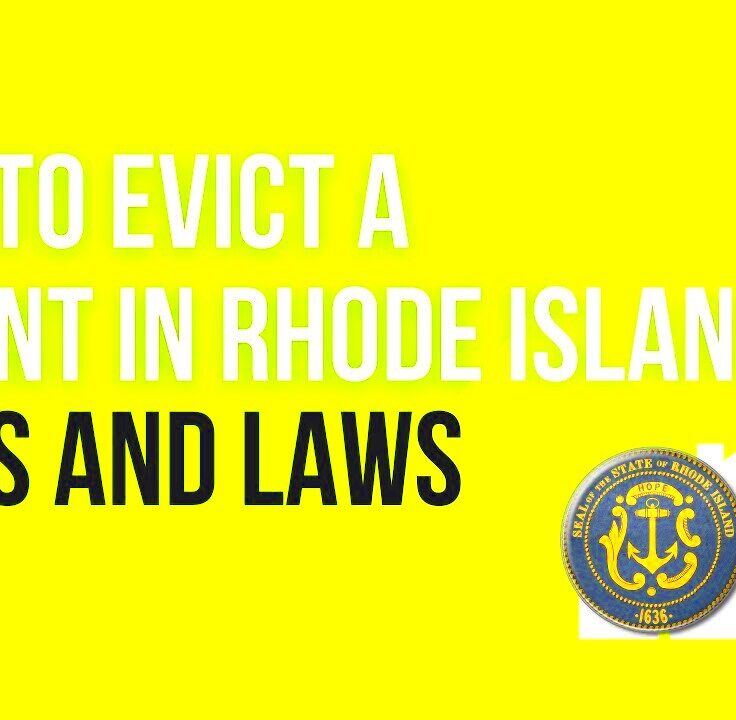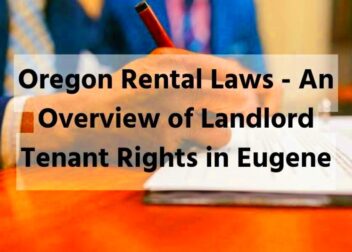What You Need to Know About Rhode Island Landlord-Tenant Regulations
Understanding landlord-tenant regulations in Rhode Island is essential for both landlords and tenants. These laws govern the rights and responsibilities of both parties, helping to ensure fair treatment and clear expectations. Whether you’re renting out a property or renting a home, knowing these regulations can prevent disputes and provide clarity in your rental relationship.
Key Definitions in Landlord-Tenant Law

Before diving into the details, let’s clarify some key terms that are crucial in landlord-tenant law:
- Landlord: The owner of the rental property.
- Tenant: The individual renting the property from the landlord.
- Lease: A legal agreement outlining the terms of the rental.
- Security Deposit: A sum of money held by the landlord to cover potential damages or unpaid rent.
- Eviction: The legal process through which a landlord removes a tenant from the property.
These definitions form the foundation of your understanding of rental agreements and the legal framework in Rhode Island. Being familiar with these terms will help you navigate any issues that arise during the rental period.
Rights and Responsibilities of Landlords

Landlords in Rhode Island have specific rights and responsibilities that are crucial to maintaining a good rental relationship. Here are some of the primary rights:
- Right to Collect Rent: Landlords have the right to receive rent on time as per the lease agreement.
- Right to Access the Property: They can enter the property for inspections or repairs, but they must provide reasonable notice.
- Right to Evict Tenants: If a tenant fails to comply with the lease terms, landlords can initiate eviction proceedings.
However, with these rights come responsibilities. Landlords must:
- Maintain the Property: They are responsible for keeping the property safe and habitable.
- Respect Privacy: Landlords should respect the tenant’s right to privacy and provide notice before entering.
- Follow Legal Procedures: Any eviction or lease termination must follow the legal process outlined in state regulations.
Understanding these rights and responsibilities can help landlords manage their properties effectively and foster positive relationships with tenants.
Rights and Responsibilities of Tenants

As a tenant in Rhode Island, you have certain rights and responsibilities that help create a balanced living environment. It’s important to know these to ensure a positive rental experience and protect yourself legally.
Your primary rights include:
- Right to a Habitable Home: You are entitled to live in a safe and well-maintained property.
- Right to Privacy: Your landlord must provide reasonable notice before entering your home.
- Right to Fair Treatment: You cannot be discriminated against based on race, gender, or other protected categories.
On the flip side, tenants also have responsibilities, such as:
- Paying Rent on Time: It’s crucial to make your rent payments as agreed in the lease.
- Keeping the Property Clean: You should maintain the cleanliness and order of your living space.
- Reporting Repairs Promptly: If something is broken or needs fixing, let your landlord know right away.
By understanding and fulfilling these rights and responsibilities, tenants can create a harmonious living situation that benefits both themselves and their landlords.
Understanding Lease Agreements
A lease agreement is a legal document that outlines the terms and conditions of your rental. It’s essential to read and understand this document before signing it. Here’s what you should look for:
- Duration of Lease: The lease will specify how long you’re renting the property, whether it’s month-to-month or for a fixed term.
- Rent Amount and Due Date: Know how much you need to pay and when it’s due.
- Security Deposit: This section outlines the deposit amount and the conditions for its return.
- Maintenance Responsibilities: Understand who is responsible for repairs and upkeep.
- Termination Conditions: Know how you or the landlord can terminate the lease.
It’s a good practice to keep a copy of the signed lease for your records. If any disputes arise, this document will serve as your reference point.
Security Deposits and Their Regulations
Security deposits are an important part of the rental process in Rhode Island. They protect landlords from potential damages and unpaid rent. Here’s what you need to know:
- Deposit Amount: In Rhode Island, landlords can charge up to one month’s rent as a security deposit.
- Deposit Holding: Landlords must keep the security deposit in a separate, interest-bearing account.
- Return of Deposit: After you move out, landlords are required to return the deposit within 20 days, along with any interest accrued, minus any legitimate deductions.
Legitimate deductions can include:
- Unpaid rent
- Costs for repairing damages beyond normal wear and tear
- Cleaning costs if the property is left excessively dirty
Understanding these regulations can help you avoid disputes regarding your security deposit when your lease ends. Keep records of your property’s condition before moving in and when you move out to protect your interests.
Termination of Tenancy and Eviction Process
Terminating a tenancy and the eviction process can be complicated and stressful for both landlords and tenants in Rhode Island. It’s crucial to understand the proper steps to take to avoid legal issues.
Tenancy can be terminated in several ways:
- Mutual Agreement: Both landlord and tenant agree to end the lease.
- Lease Expiration: If the lease is for a fixed term, it ends when the term is up.
- Notice to Quit: A landlord may give written notice to a tenant to terminate the lease for specific reasons, such as non-payment of rent.
When it comes to eviction, landlords must follow a legal process, which includes:
- Providing Notice: The landlord must give the tenant a formal notice to vacate, which typically provides a specific number of days to leave.
- Filing for Eviction: If the tenant does not comply, the landlord can file an eviction lawsuit in court.
- Court Hearing: A hearing is scheduled, where both parties can present their cases.
- Eviction Order: If the court sides with the landlord, they will issue an eviction order.
It’s important to note that self-eviction, where landlords try to force tenants out without legal proceedings, is illegal. Both parties should understand their rights and responsibilities throughout this process to ensure a fair outcome.
Resources for Landlords and Tenants
Whether you’re a landlord or a tenant, knowing where to find help is essential. There are various resources available to assist you with any questions or issues related to landlord-tenant regulations in Rhode Island.
Here are some helpful resources:
- Rhode Island Department of Business Regulation: Offers information on landlord-tenant laws and regulations.
- Legal Aid Organizations: Provide free or low-cost legal assistance to tenants facing eviction or landlords needing guidance.
- Local Housing Authorities: Can provide information on tenant rights and available housing options.
- Community Mediation Services: Help resolve disputes between landlords and tenants without going to court.
Additionally, local libraries and community centers often have resources and workshops on tenant rights and responsibilities. Utilizing these resources can help both landlords and tenants navigate their rights and responsibilities more effectively.
FAQs about Rhode Island Landlord-Tenant Regulations
Understanding landlord-tenant regulations can raise many questions. Here are some frequently asked questions to clarify common concerns:
- What is a legal reason for eviction? A landlord can evict a tenant for reasons such as non-payment of rent, violation of lease terms, or illegal activity on the premises.
- How much notice must a landlord give to terminate a lease? In Rhode Island, landlords generally must provide at least 30 days’ notice unless the lease specifies otherwise.
- Can a landlord keep my security deposit? A landlord can only keep the security deposit for legitimate reasons, such as unpaid rent or damages beyond normal wear and tear.
- What should I do if my landlord refuses to make repairs? Tenants should notify their landlord in writing about needed repairs. If the landlord fails to respond, tenants can contact local housing authorities for assistance.
- Where can I find legal help? Tenants and landlords can seek legal assistance from local legal aid organizations, private attorneys, or through state resources.
These FAQs aim to provide quick answers to common concerns, helping you navigate your rights and responsibilities under Rhode Island’s landlord-tenant regulations more effectively.
Conclusion on Rhode Island Landlord-Tenant Regulations
Understanding Rhode Island landlord-tenant regulations is crucial for both parties to maintain a fair and respectful rental relationship. These laws ensure that landlords can manage their properties effectively while protecting tenants’ rights. By familiarizing yourself with your rights and responsibilities, whether you’re a landlord or a tenant, you can avoid potential disputes and foster a positive living environment. If you encounter challenges, remember that resources are available to help you navigate these situations and ensure a successful rental experience.


